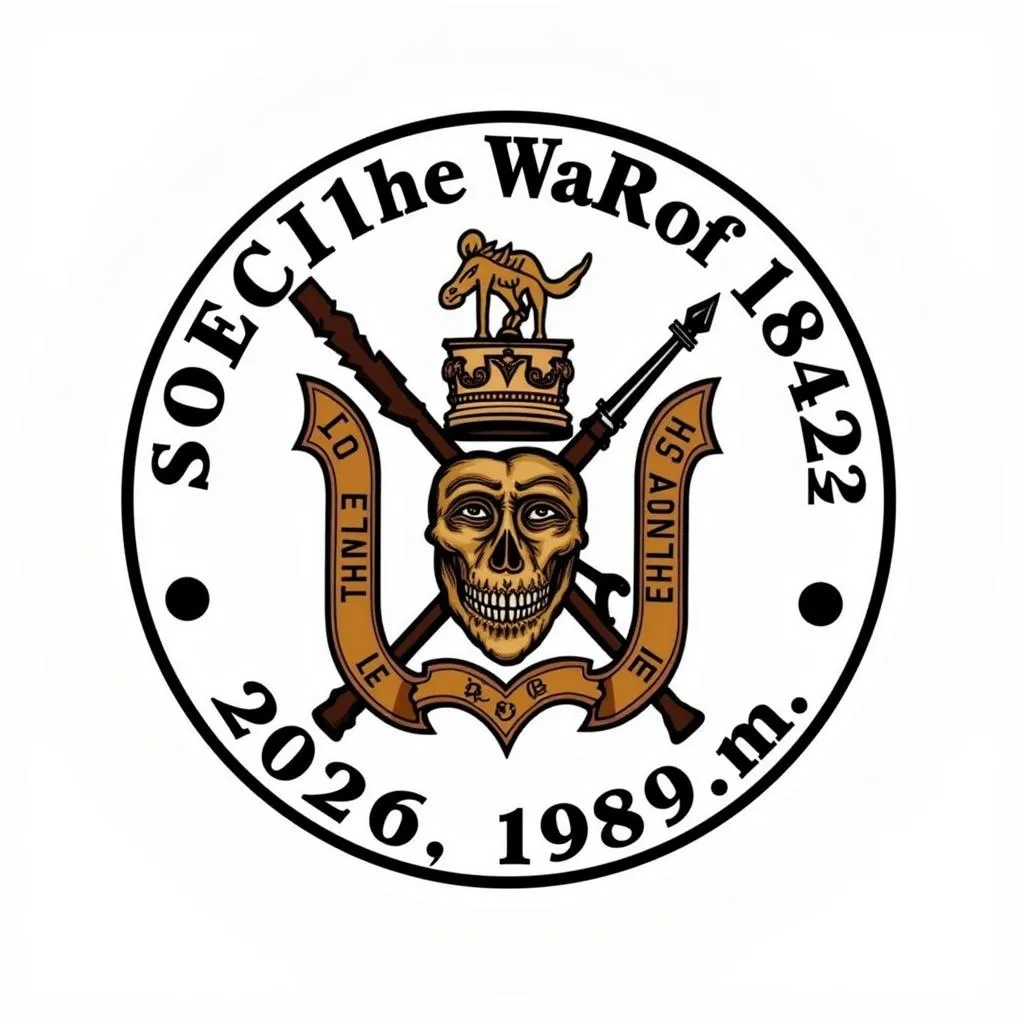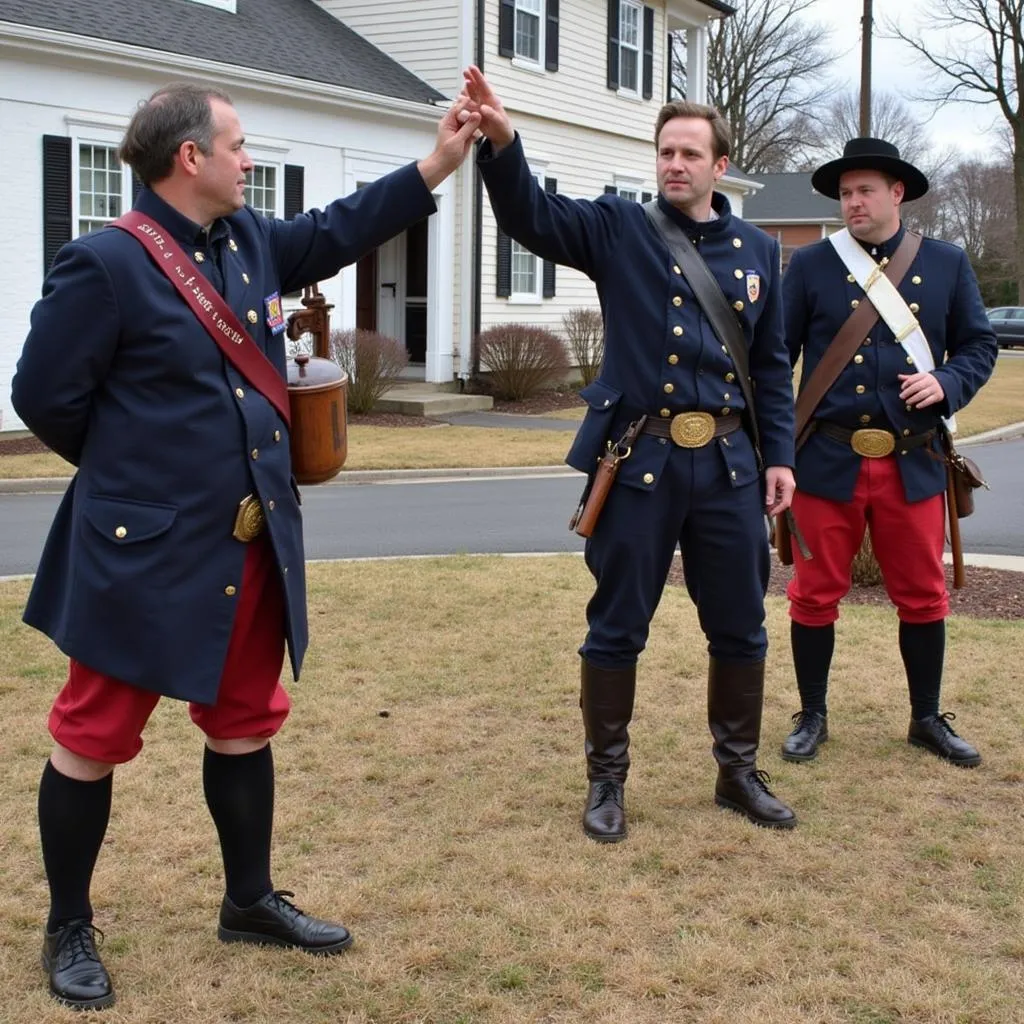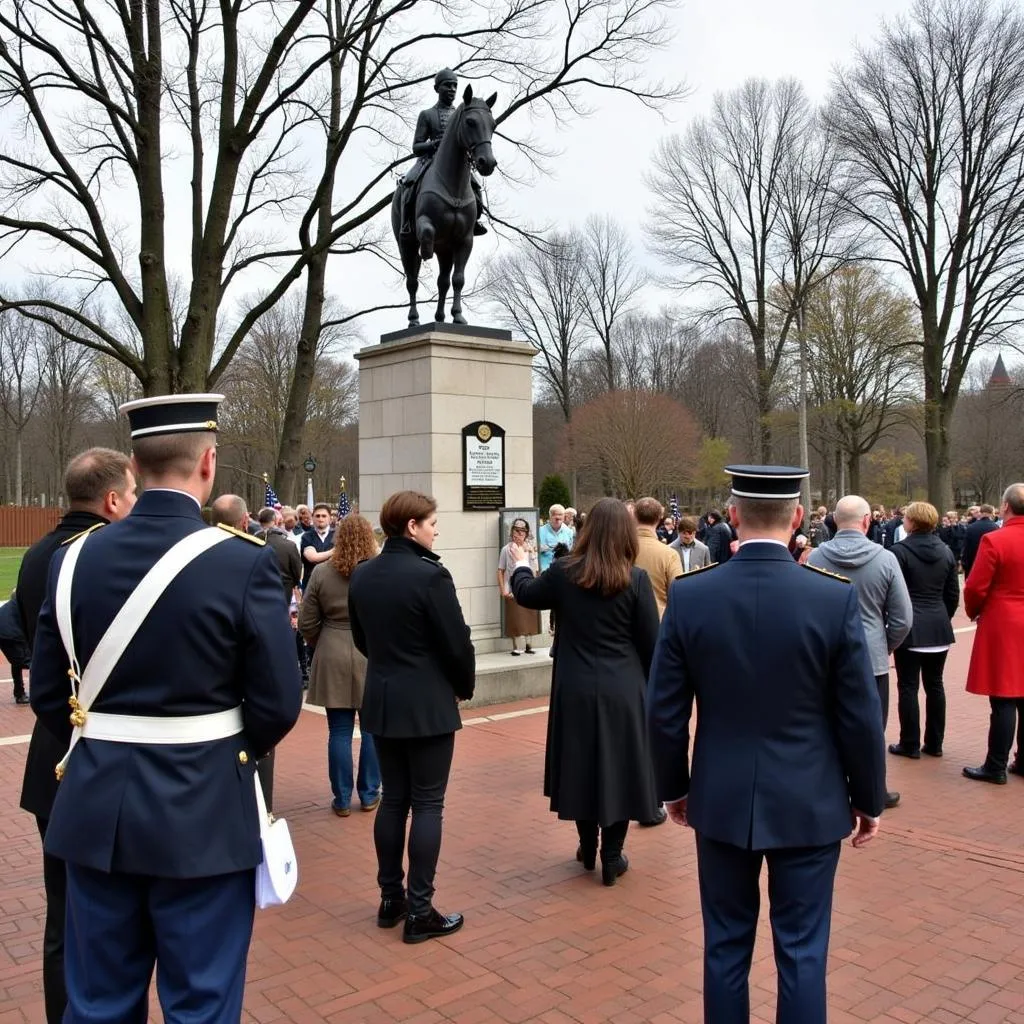The Society Of The War Of 1812 is a lineage-based organization for male descendants of veterans who served in the United States armed forces during the War of 1812. While their existence centers around a historical conflict, their mission extends far beyond simply commemorating the past. This article delves into the Society of the War of 1812, exploring their origins, activities, and how they contribute to a more peaceful future by understanding the past.
 Society of the War of 1812 logo
Society of the War of 1812 logo
Origins and Membership
Founded in 1895, the Society of the War of 1812 emerged during a period of significant historical reflection and patriotic fervor in the United States. The organization aimed to unite men who could trace their lineage back to those who served in the War of 1812, fostering a sense of shared heritage and pride.
Membership in the Society of the War of 1812 is hereditary, meaning individuals must demonstrate direct descent from a veteran of the War of 1812. This lineage requirement connects members to the historical conflict in a tangible way, making their ancestor’s service a point of personal significance.
More Than Just a Historical Society
While the Society of the War of 1812 undoubtedly revolves around a historical event, their activities and impact extend beyond mere commemoration. The organization actively engages in various endeavors that promote historical understanding, education, and even contribute to contemporary dialogues on peace.
Historical Preservation and Education
The Society of the War of 1812 is deeply committed to preserving and promoting the history of the war and its significance in shaping the United States. They achieve this through various initiatives, including:
- Maintaining archives and collections: The Society houses a wealth of historical documents, artifacts, and records related to the War of 1812, making these resources accessible to researchers and the public.
- Publishing historical research: The Society actively publishes scholarly articles, books, and journals that delve into various aspects of the War of 1812, ensuring that new findings and interpretations are shared with a wider audience.
- Educating the public: Through lectures, exhibitions, and educational programs, the Society strives to inform the public about the often-overlooked War of 1812 and its lasting impact on American history and identity.
 Members of the Society of the War of 1812 at an event
Members of the Society of the War of 1812 at an event
Patriotism and Citizenship
The Society of the War of 1812 views patriotism and active citizenship as crucial aspects of their mission. They encourage members to engage in their communities and uphold the values they believe were fought for in the War of 1812.
- Community service: The Society encourages its members to participate in community service initiatives, promoting civic responsibility and active engagement in contemporary society.
- Honoring veterans: The Society regularly honors veterans of all American conflicts, recognizing their service and sacrifice to the nation.
Fostering Peace Through Understanding the Past
The Society of the War of 1812 implicitly recognizes that understanding the complexities of past conflicts can contribute to a more peaceful future. By examining the causes, consequences, and human toll of war, individuals and societies can cultivate a deeper appreciation for diplomacy, conflict resolution, and the preservation of peace.
 Society of the War of 1812 members at a memorial
Society of the War of 1812 members at a memorial
While their origins lie in commemorating a historical war, the Society of the War of 1812 ultimately seeks to use the lessons of the past to inspire a more peaceful present and future. Their efforts in historical preservation, education, and promoting active citizenship demonstrate a commitment to values that transcend the battlefield and contribute to a more harmonious world.